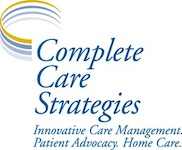BY: Beverly Bernstein Joie , MS, CMC
President Elder Connections

The Care Manager’s Diary
Today I received a phone call from an out-of-town daughter. Within minutes, I learned about her aging father and little of what precipitated her call. Her eighty-seven year old, father had been a victim of a medical error that damaged his heart and left him close to death. Left on a ventilator and in need of skilled medical support to remain alive, he had been in a specialized nursing home, hospitals, and now in an acute rehabilitation center.
Caregiver Needs Help
She was too distraught to give me too many details and she wanted to “spare me” from these events. This daughter was calling for one purpose only. She wanted Elder Connections to help her father spend his final days in her sister’s home and not a nursing home.
Better Senior Care for Aging Parent
I was emotionally moved by this conversation and honored that she trusted Elder Connections to grant this final wish. Unfortunately, the heart retching reality of the medical error that led to this situation was one that I have heard before. Families must have heartfelt conversations about end of life care, advanced directives and final wishes to secure better senior care for aging parents.
Facts about Medical Errors
- 44,000 – 98,000 people die in hospitals each year as reported from the Institute of Medicine
- Errors occur in hospitals, physicians’ offices, nursing homes, pharmacies, urgent care centers, and care delivered in the home
- Financial estimates of medical errors cost approximately $37.6 billion a year
Obama’s Controversial Health Plan Addresses Medical Errors
- Computerizing Health Records in 5 Years – paper based methods are antiquated and rely on memory. They are prone to error, time-consuming, costly and wasteful.
- Developing and Disseminating Information on Effective Medical Interventions – the goal is to get physicians the information they need to provide the highest quality of care.
- Improve Patient Safety and Quality Care – implementation of proven patient safety measures and incentives for changes in the delivery system to reduce unnecessary variability in patient care.
A Better Plan
You and I can not change our nation’s health care plan, but we can give our aging parents better senior care. Consider this – “do not let what you can not do interfere with what you can do.” What can you do?
